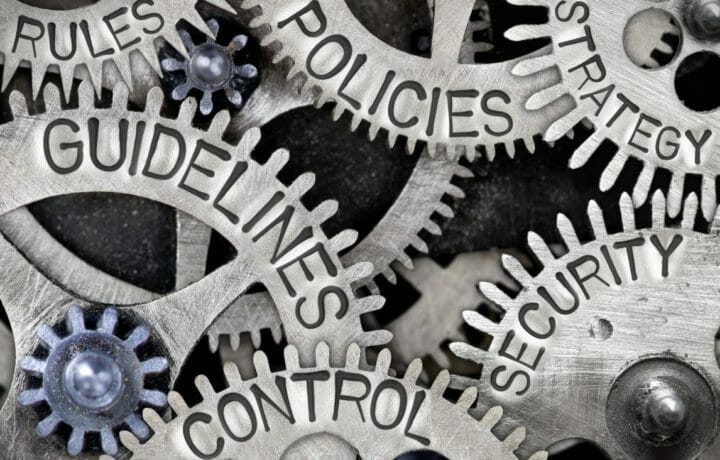If you’ve ever dreamed of landing a government contract for your business, SAM.gov is the place to start. Whether you’re a small startup or a well-established company, the U.S. government represents a massive opportunity for revenue and growth. But getting your foot in the door isn’t as simple as just throwing your hat in the ring. You’ll need to register your business on SAM.gov first—a crucial step that makes your company eligible to bid on contracts, receive grants, and do business with federal agencies.
Here’s everything you need to know about what SAM.gov is, why it matters, and how you can become eligible.
What is SAM.gov?
SAM.gov stands for the System for Award Management, and it’s the U.S. government’s official system for registering businesses that want to work with federal agencies. Whether you’re looking to secure contracts, apply for grants, or even partner with other contractors, being registered on SAM.gov is a non-negotiable first step.
The platform allows businesses, nonprofits, and other entities to register their information so they can be vetted for eligibility. Once you’re on SAM.gov, your business becomes part of a searchable database where federal agencies can see your information, check your credentials, and determine if you’re fit for a contract or partnership.
Why SAM.gov Matters
SAM.gov isn’t just another hoop to jump through. Registering makes your business eligible to receive contracts, grants, and financial assistance from the federal government. In fact, without a SAM.gov registration, your business won’t even be considered for most government opportunities.
And the potential here is huge. The U.S. government is the world’s largest buyer, spending over $600 billion annually on goods and services. From IT solutions to catering services, there’s a massive range of contracts available to businesses of all sizes. Registering on SAM.gov opens you up to this world of opportunity.
Who Should Register on SAM.gov?
Anyone who wants to do business with the federal government needs to register. This includes:
1. Businesses
From large corporations to small and minority-owned businesses, everyone can register if they’re interested in government contracts.
2. Nonprofits
Many nonprofits work with the government, providing services ranging from community outreach to disaster relief.
3. Government Contractors
If you’re already working with the government but don’t have a SAM.gov registration, you could be missing out on future opportunities.
4. Consultants and Service Providers
The government contracts for a wide range of professional services—everything from legal advice to marketing.
Even if you’re a startup with no government experience, SAM.gov registration can provide a massive boost. The government offers many contracts specifically aimed at smaller businesses, so you don’t have to be a giant corporation to compete.
How to Get Eligible on SAM.gov: Step-by-Step Guide
Getting eligible on SAM.gov isn’t difficult, but it does involve several steps. Here’s a breakdown:
1. Obtain a DUNS Number
Before you can register on SAM.gov, your business needs a DUNS (Data Universal Numbering System) number. A DUNS number is a unique identifier for your business, issued by Dun & Bradstreet. This is the government’s way of ensuring that every entity is clearly identified and accounted for. If you don’t already have a DUNS number, you can obtain one for free through the Dun & Bradstreet website.
2. Get an EIN (Employer Identification Number)
You’ll also need an EIN (Employer Identification Number) from the IRS. This is essentially your business’s tax ID number, and it’s required for all entities that file taxes as businesses in the U.S.
3. Create a Login on SAM.gov
Once you have a DUNS number and EIN, you can go to SAM.gov and create an account. You’ll need to provide basic information about your business, including your name, address, and point of contact.
4. Enter Business Information
When you’re creating your SAM.gov profile, you’ll need to enter detailed information about your business. This includes information like:
- Business size and structure
- Ownership details
- Financial data
- NAICS codes (industry classifications)
It’s important to be accurate, as the government will use this information to determine if your business is eligible for specific contracts.
5. Complete the Representations and Certifications
SAM.gov will require you to complete a section called Representations and Certifications (Reps & Certs). This section asks you to verify that your business complies with federal laws and regulations related to government contracting. You’ll need to provide assurances about things like ethics, labor practices, and non-discrimination.
6. Submit for Review
Once you’ve entered all your information and completed the necessary certifications, submit your application for review. It typically takes a few days to get approved, but once your registration is active, you’re officially eligible for federal contracts and grants.
Tips for Navigating SAM.gov
- Be Patient: Registering can take time, especially if you’re unfamiliar with the system. Make sure all your paperwork is in order before starting the process.
- Update Regularly: SAM.gov requires businesses to update their registration at least once a year. Failure to do so can result in your registration being deactivated.
- Check for Small Business Opportunities: If you qualify as a small business, SAM.gov offers specific programs designed to help you win contracts.
Common Pitfalls to Avoid
- Incomplete Information: Make sure every section is filled out completely and accurately. Incomplete information can delay your registration or even result in denial.
- Ignoring the Annual Update: Forgetting to update your profile annually could deactivate your registration, and you’ll need to reapply.
Why SAM.gov is Worth It
While registering on SAM.gov might seem like an intimidating process, it’s absolutely worth the effort. Not only does it make your business eligible for government contracts, but it also opens the door to partnerships, grants, and financial opportunities you might not have otherwise considered. Whether you’re a small business or a large corporation, SAM.gov is the key to unlocking potential business with the world’s largest buyer—the U.S. government.


